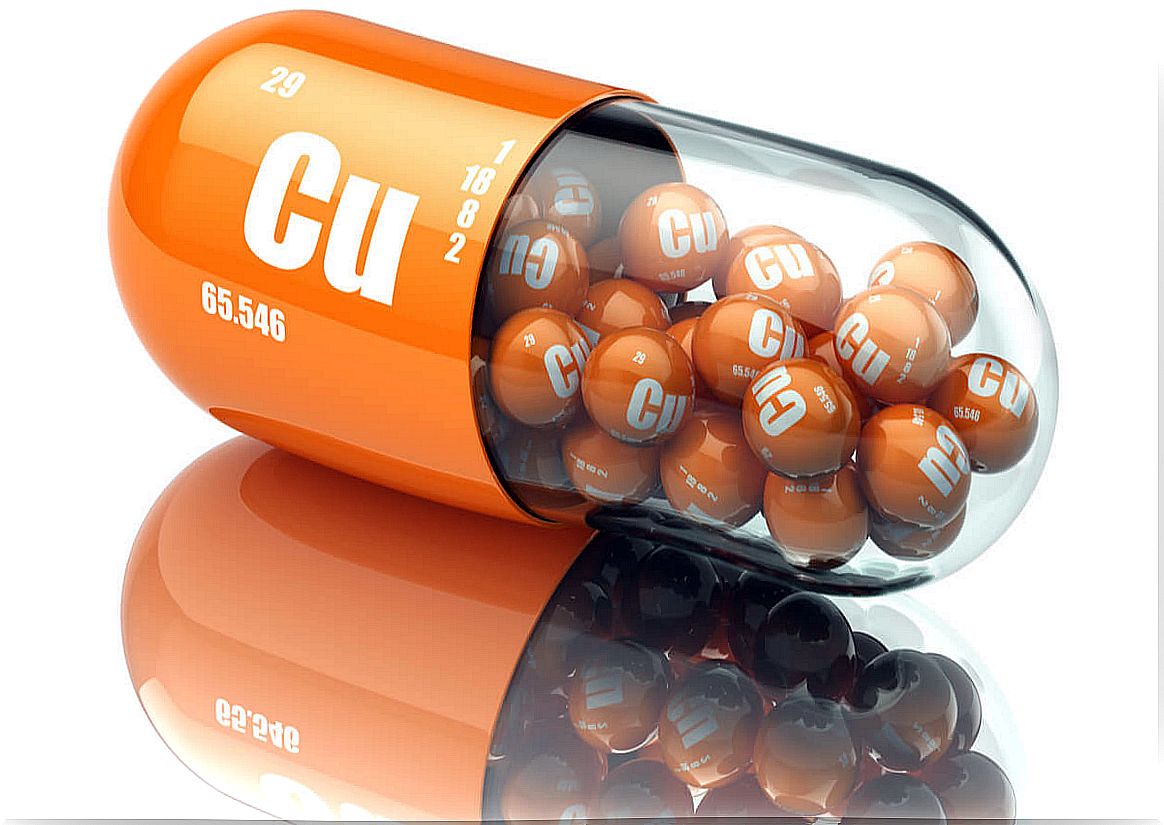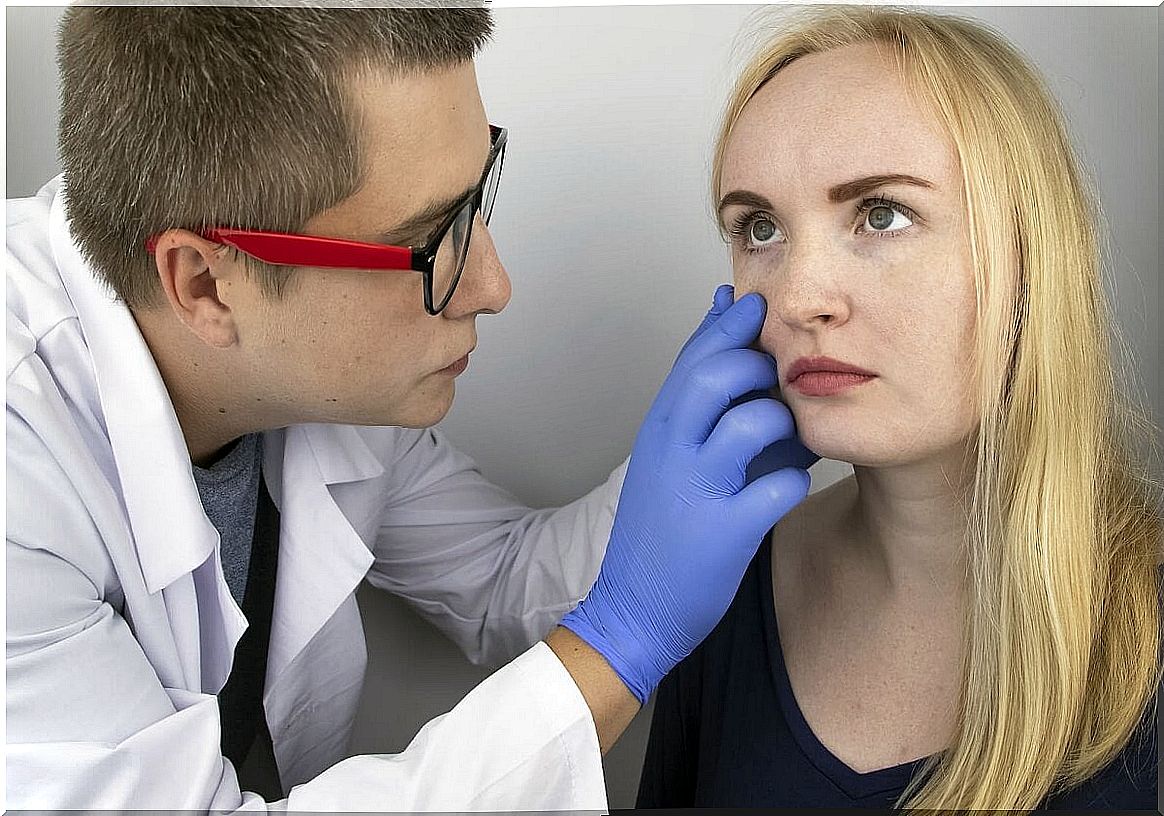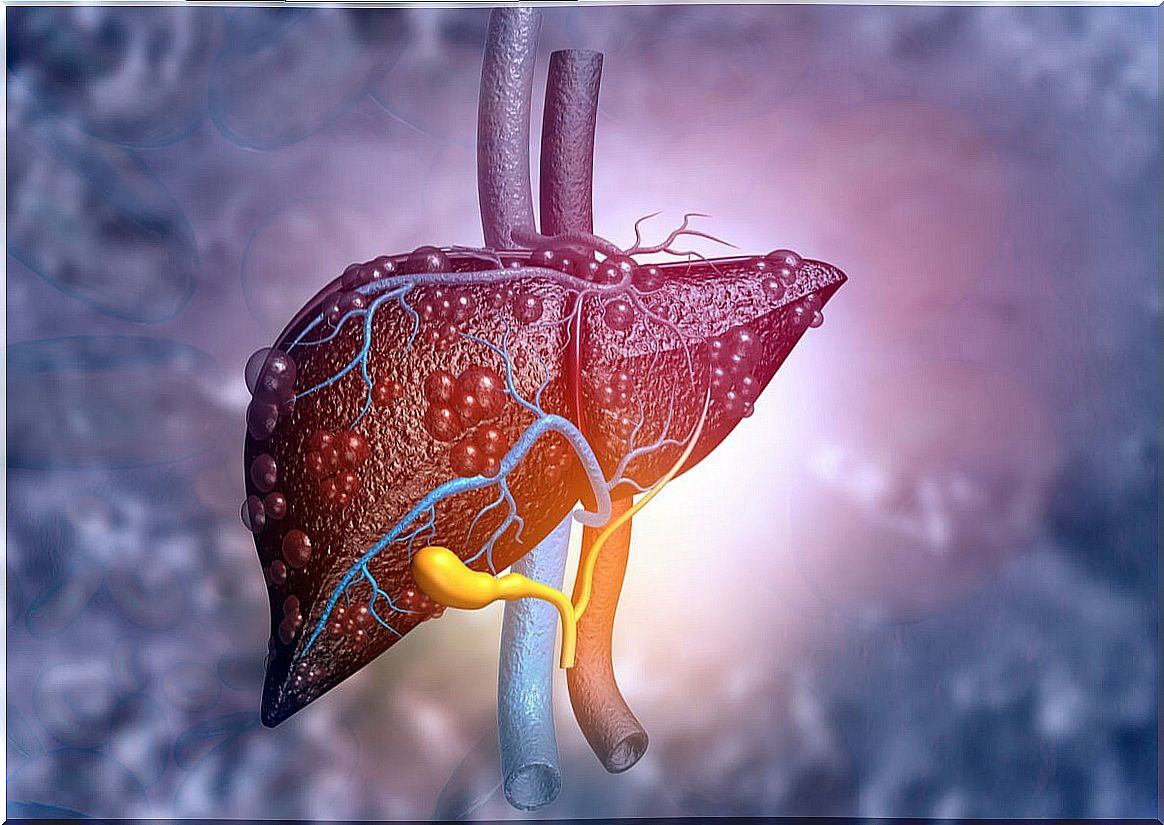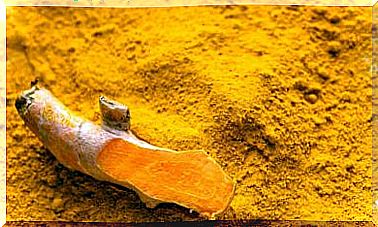What Is Colloidal Copper And What Are Its Effects?
Colloidal copper is a form of administration of this mineral that can be useful for some pathologies. For example, for wound healing. We explain it to you.

Colloidal copper is a supplement for this mineral that is currently on the rise. It is administered to supply the deficiency of the substance, which is related to health problems such as anemia.
But in addition, colloidal copper is beginning to be used in the treatment of many other pathologies. For example, it is sold as a useful product in skin care. The problem is that it can lead to side effects.
In some cases its use is contraindicated, since it presents a high risk of complications. Therefore, in this article we explain everything you need to know about colloidal copper and when it can or cannot be used.
Why do we need copper?
Copper is a mineral present in the environment, forming part of the soil and vegetation. In fact, it is essential for plants, animals, and humans. According to a study published in Medicine , in the case of people it is a fundamental element. That is why alterations in its concentration lead to pathologies.
This is because copper participates in the synthesis of neurotransmitters and in the formation of connective tissue. It also allows many enzymatic reactions to occur in different parts of the body. Mainly it predominates in the liver, the brain, the kidneys and the heart.
An article from Guantanamo University explains that copper is necessary for myelin to form in the brain. Myelin is the substance that covers neurons and allows nerve impulses to be transmitted correctly.
Copper promotes wound healing and is necessary for the immune system to be in good condition. Similarly, it is required by the thyroid gland and is part of melanin.
Therefore, when there is a copper deficiency, numerous pathologies can appear. The most prominent is anemia. It occurs because copper mobilizes iron in the blood. There may also be osteoporosis, joint problems, and neutropenia (low white blood cell count).

What is colloidal copper?
Colloidal copper, as we mentioned at the beginning, is a supplement of this mineral. That is, it is a way of administering copper to improve its concentrations in the blood. It is useful in cases of deficiency of the substance or to treat a specific pathology.
The truth is that having a copper deficit is a rare situation. When this occurs, it is usually associated with malnutrition or absorption problems derived from intestinal surgeries. Also in genetic diseases.
Colloidal copper receives this name due to its conformation. Colloids are substances that slowly disperse in a liquid. This form of administration makes copper more absorbable than when administered in capsules or tablets.
What are its benefits?
Colloidal copper is on the rise and many people are using it as a treatment for various pathologies. However, the truth is that studies about its benefits are not entirely conclusive.
It is confirmed that, in the event of a copper deficiency, the incorporation of copper orally or intravenously can be recommended. In this way, certain cases of anemia or the complications that we have mentioned before are improved.
A study published in Biomaterials comments on the possible use of copper in dressings. The idea is to stimulate the creation of blood vessels in the skin to heal wounds in which their thickness has been reduced. Another research published in Medical Hypothesis talks about copper impregnated socks to treat skin problems that usually occur in diabetic people.
This, added to the fact that it stimulates the creation of blood vessels, makes colloidal copper a good therapeutic option. Furthermore, it is not usually associated with adverse reactions when administered through the skin.
Side effects of colloidal copper
Colloidal copper has a very low risk of causing skin problems. The problem is that both the deficit and the excess of the mineral are harmful to the body. For this reason, secondary side effects sometimes appear.
In some cases there may be abdominal pain, nausea, or even vomiting. These are usually associated with oral administration and at higher doses than recommended. Hypotension or diarrhea may also appear.
When is it contraindicated?
Colloidal copper is contraindicated in all those who have an excessive amount of this mineral in the body. This occurs in different diseases and one of the best known is Wilson’s disease.
Wilson’s disease, as explained by specialists from the Mayo Clinic, is a rare inherited disorder. Copper accumulates, especially in the liver, brain, and heart. Therefore, administering the colloidal form to these people causes serious complications.
Similarly, it is contraindicated in childhood liver cirrhosis, as it can worsen its course. Lastly, it is important to know that colloidal copper reacts with a drug called penicillamine . The drug is often used to treat Wilson’s disease and rheumatoid arthritis.
Dosage and indications of colloidal copper
The dosage of colloidal copper must be strictly followed. Excess of this substance leads to health problems. The recommended amount is 0.1 milligrams per kilogram of weight per day.
It is important not to take more than 10 milligrams a day. However, it is difficult to talk about exact doses, since colloidal copper is not a drug as such, but a supplement. Requirements will vary based on age, person, and underlying health status.
For example, there are patients who need a slightly higher amount than the rest. This is the case of those who receive hemodialysis for a kidney disorder. The doctor must be the one who recommends the form of use.

Can you trust colloidal copper?
Colloidal copper is a supplement that can be beneficial to avoid certain pathologies related to the deficiency of this substance. Similarly, it appears to be useful in treating skin-related diseases.
As we’ve already noted, it is safe when used topically. It hardly produces any dermatological toxicity reactions. However, today there has been controversy about whether it is really beneficial.
For example, it is doubted that it is effective against systemic lupus erythematosus or Alzheimer’s. A recent study published in the Journal of Neurology explains that, in reality, excess copper can also play a role in the development of neurodegenerative pathologies. There is also insufficient evidence that it improves acne.
Colloidal copper requires more research
The truth is that colloidal copper still requires more studies to know exactly its indications and benefits. It is important to remember that, as with other supplements, you should always consult your doctor before taking it.
It is an over-the-counter product. However, excess in the body is associated with numerous side effects. Therefore, it should not be consumed lightly and without supervision.









